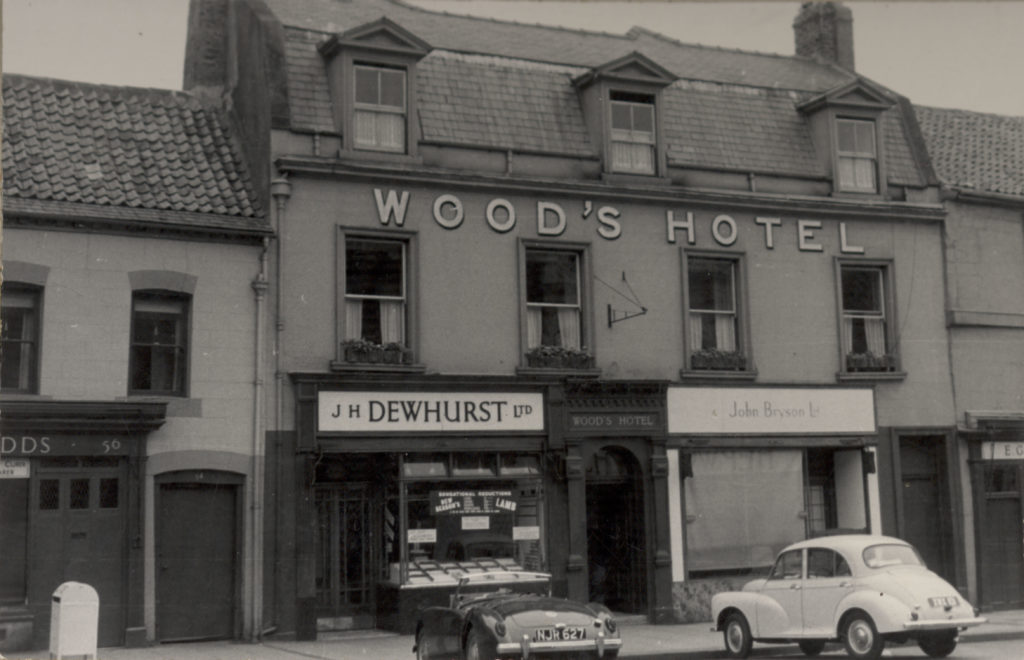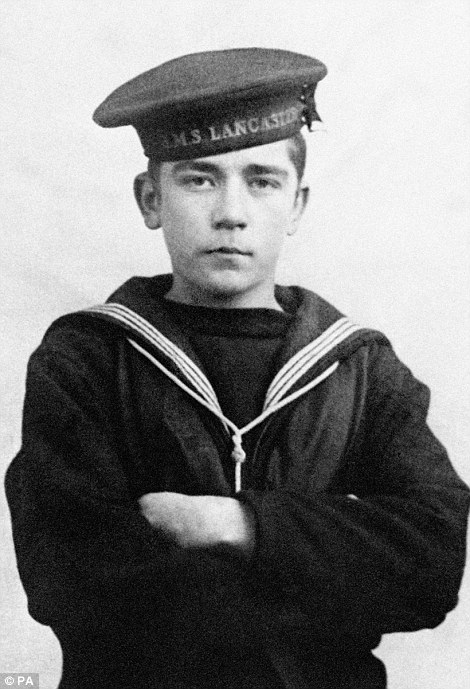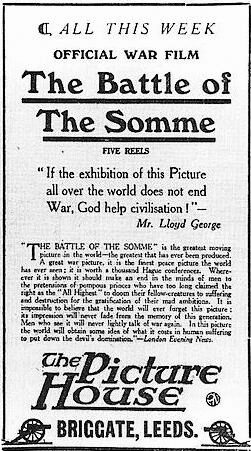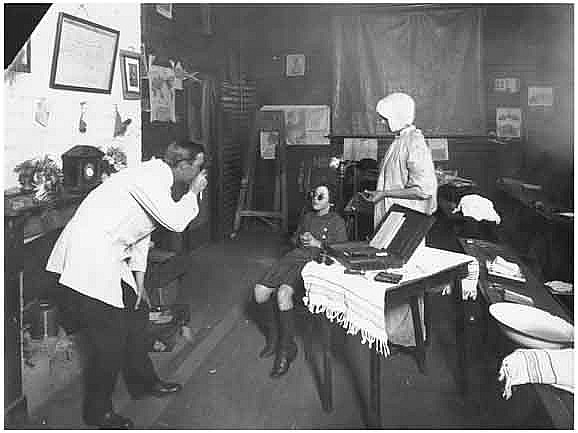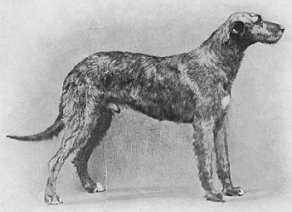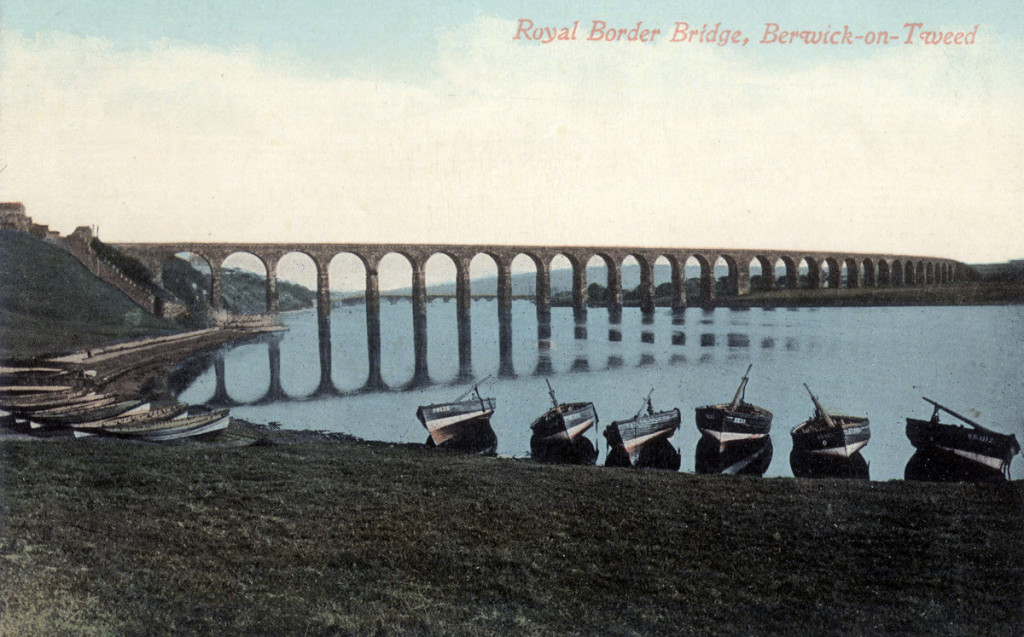BERWICK ADVERTISER, 8 FEBRUARY 1917
BERWICK SOLDIER WHO HAS EARNED DISTINCTION
We have favoured with the above recent photo of Rough Riding Sergeant Mathew McConville Burke, Royal Field Artillery, who has been awarded, as already briefly reported, the Russian Order of the 4th Class of St. George. We understand he has also been awarded a Serbian Order for meritorious service in the field. When he was Corporal prior to the outbreak of war, he was a prominent Fencing Instructor to the troops. He was seen considerable service on several fronts, and is a well-known and popular figure in the borough. Sergeant Burke, who in his early soldering days was for a long period trumpeter on the Artillery Permanent Staff at Berwick, is the son of Mrs Rose Ann Burke, West End, Tweedmouth. He married an estimable young lady, who will be well-known to Berwick readers, a grand-daughter of the late Mr Patrick Davis, West Street, Berwick.
LOCAL NEWS
The Playhouse – This week the film will be “A Butterfly on the Wheel”, from the play by E. C. Hemmerde and Francis Neilson, in five reels. When produced at the Globe theatre in 1911 it achieved an instantaneous success, being revived later at the Queen’s theatre, where it enjoyed an equal measure of popularity. There is an excellent and captivating variety entertainment. On Monday, Tuesday, and Wednesday, the film will be entitled “Jimmy,” by John Strange Winter. It reflects British life with a fidelity unknown, breathes the home spirit, and the story is told amid correct surroundings.
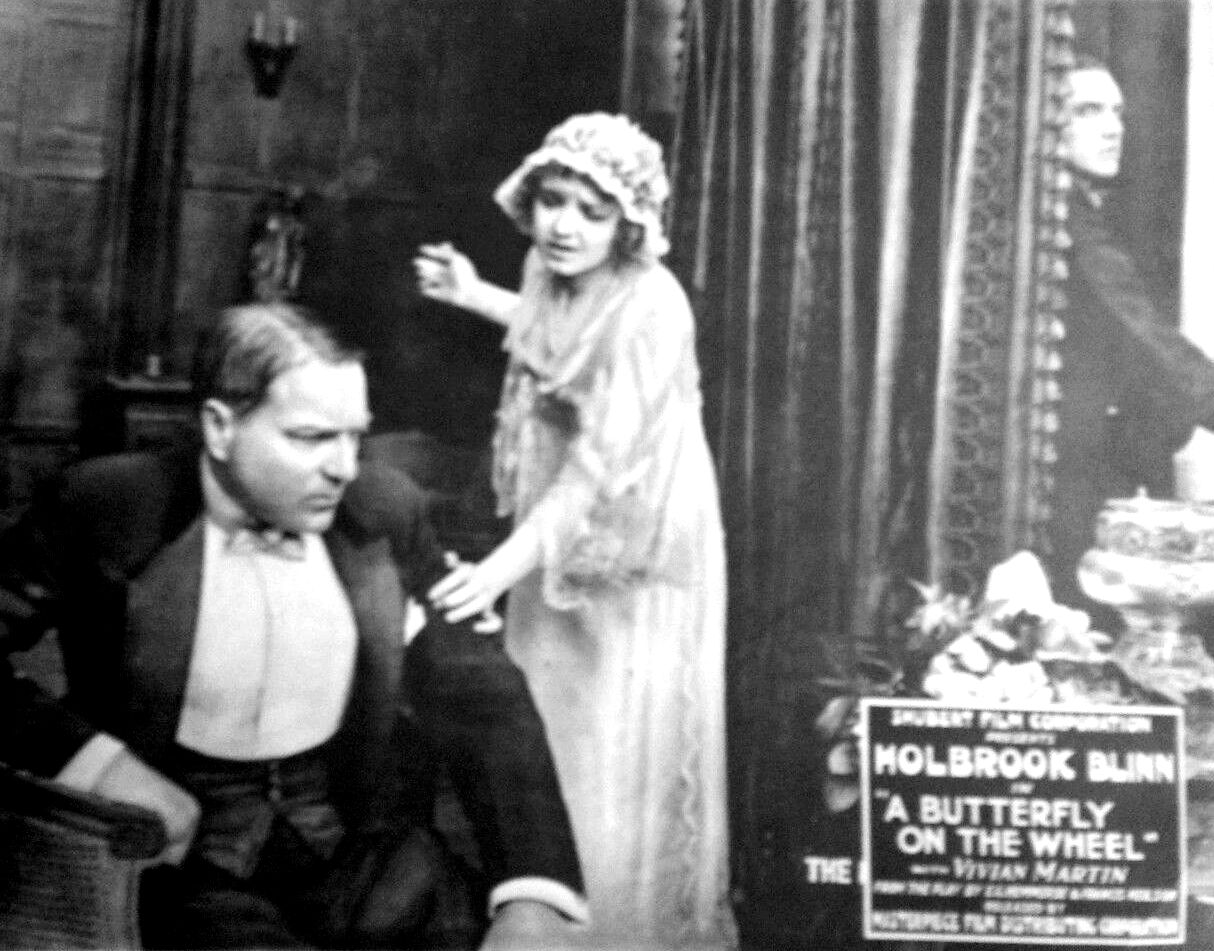
On Thursday, Friday, and Saturday of next week the picture will be “Hesperia, the Lady of the Camellias”, a masterly version of one of Dumas novels. It is the most famous love story written in modern times. The attention of the public is specially directed to another film also to be shown on the same evenings – “How to Help Tommy.” It has been specially authorised by the War Office showing the work of the Voluntary Organisation Department. The film shows how every class and age is helping to provide comforts for the men who are fighting. The Boy Scouts will make a collection at the door of each house in aid of the local work. Genie Glenn, a dainty comedienne and refined soprano vocalist, will provide an excellent variety programme.
Free meals for Soldiers and Sailors. – The Committee in charge of the fund for providing free meals for soldiers and sailors who are compelled to remain overnight at Berwick owing to lack of train connections, deserve the highest praise for the work which has already been accomplished. The fund, which was inaugurated by Lady Clementine Waring of Lennel, and Mrs Fraser Bate, Bassendean, has up to the end of January, 1917, provided no less than 3,135 free meals.

Nightly a patrol meet the last train from the south, and after the wants of the man or men coming by such train have been cared for, a bed is found for the night, and next morning before leaving, breakfast is provided. In this good work the railway officials give great assistance in seeing that any man “stranded” for the night is looked after. Naturally, such an organisation as this costs a considerable amount of money to keep in working order, and when it is remembered that the men who benefit and appreciate its efforts are soldiers and sailors mostly from Northumberland and Berwickshire, it has a greater claim to the support of the public. We trust that the work of the Committee will continue in the future to bring cheer and comfort to our serving men as it has done in the past.
LOCAL SOLDIER’S LITERARY EFFORT
The other day, somewhere in France, a grand competition was inaugurated by the Y.M.C.A. workers at a large centre. Prizes were offered for the best love letter, for the best poem modelled on “John Gilpin”, written about the Y.M.C.A., and for the best ten minutes speech. Great interest was taken in the competitions, and there were many entries, and great excitement reigned in the huts as the day for the declaration of results drew near. The first prize in each class was won by a Berwick man, Leslie P. Gleig, Royal Engineers, for the best following poems, and for a brilliant ten minutes speech on “The Mule.”
Sapper Leslie F Gleig, the subject of our sketch came to Berwick from Newcastle some six years ago, and was employed as a plumber and gas fitter with N.E. Railway, he having served the company from his days of apprenticeship. He is a fluent speaker, and in the Socialist cause did yeoman service on platform and in the work of organisation. His work as secretary to the local branch of the I. L.P. has been greatly appreciated, while in the Berwick Debating Society he earned for himself an honoured place. For many years he was a member of the Newcastle Chess Club, and was an enthusiastic follower of the game. From the outbreak of war he was anxious to enlist, but it was only in December 1915 that the Company agreed to liberate him, he then enlisting in the Royal Engineers. His training was done in Yorkshire, and while there he won the certificate and bronze medal of the Royal Life Saving Society for the rescue from drowning test, only one other man in the Battalion winning this.
The following is the “love letter” which earned the prizes for Sapper Gleig:-
Dear lady, in that land across the sea,
Which I for duty’s sake have left awhile,
This loving letter that I send to thee,
Perchancer may draw a tear or win a smile.
Which of these tributes, sweet, would be my choice
I know not, for thy tender smile of yore
When I did greet thee, made my heart rejoice
And lose itself in loving more and more.
But if a tear should dim those eyes so kind,
At thought of me far travelled from thy side,
And if some sadness shall o’ercast the mind,
Because our destinies are thus divide,
That tear to me a greater price would bear
Than wealth of sparking jewels, rich and rare.
For I do treasure every fleeting thought
My gracious lady does on me bestow,
None other can supplant her, there is nought
Of inspiration that I do not owe
To that sweet mistress of my soul, for i
Unworthy though I am to be her slave,
Do yet among all men my head bear high;
For that she deigned accept the love I gave,
Dear sweetheart mine, my love can ne’er be tod,
It is a well of happiness and trust.
A treasure house of joy as pure as gold,
Hat in the fire of life will never rust;
Much honoured I, that I thy name may sign
Thy favoured lover true, as thou art mine.




